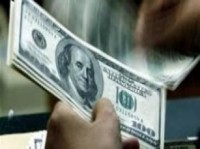Currency volatility and weakness an opportunity to invest in emerging markets
Currency volatility and weakness an opportunity to invest in emerging markets
3/31/2014 0:00
 Capitals agencies
Capitals agencies
when rumors began about reducing the U.S. Federal Reserve for its latest quantitative easing III in May 2013, eased global investors their presence in emerging markets and headed to safer assets such as stocks in developed countries.
This has resulted in a shift towards investments at least a threat to a sharp drop in prices Exchange emerging market currencies, such as the Argentine peso, which dropped 54 percent since May 1, 2013, and the Turkish lira, which fell at a rate of 24 percent, and the South African rand, which fell at a rate of 19 percent. It also dropped all of the Brazilian real and Alrobel Russian and Indian rupee by more than 10 percent of their values.
, and the Federal Reserve began lowering incentives program of quantitative easing, the third since January this year, but it was decided that such reductions gradually, by reducing liquidity injections monthly amounting to 85 billion dollars , by 10 billion dollars, and then reduced by 10 billion dollars at a time to meet Federal Open Market Committee. The Committee met twice since the beginning of this year, and has six meetings during the coming year. Which means that at the beginning of next year, if all factors remain constant, the Fed would not pump any liquid, has interest rates start to rise from the second half of 2015. Because of the concern that was associated with reduction of the third quantitative easing in mid-2013, has increased fears of a rise in interest rates earlier than expected, which caused the transmission of large funds out of emerging markets. If, because over the flow of funds to the outside with a gradual reduction of liquidity pumped by the Fed, with the beginning of the interest rate rise?
surprised when the Fed markets process reducing quantitative easing III initiated in January of this year, were not the reaction of the currency as bad reaction In May of last year. It was the currency in emerging markets are weak dramatically this year, and that the reduction was anticipated since last year. It is the currency most affected by the reduction of the primary concerns, not decreased non-Russian Alrobel rate of 2 percent, since the start of the process of reducing the third quantitative easing in late January last year, while the rest began to recover from the currency exchange rate low before the process of reducing the quantitative easing III. At the end of March, the Indonesian rupiah is the highest, at a rate of 7 percent since the Fed announced officially about the process of reducing the quantitative easing third, then followed by the Brazilian real, which rose at a rate of 5 percent, then the Indian rupee and South African rand which increased at a rate of 3 percent, and the Turkish lira and the Argentine peso which increased by less than 1 percent.
leads to various factors improve these currencies, one of which is the improved trade balances as a result of the recovery in exports. Currency weakness has led to increased competition and rising export revenues. Other factors that support the high exchange rate of the currency is a world economic upturn, as indicated by recent gains to consumer confidence in the U.S. recovery modest GDP for the euro zone, which means theoretically increase the demand for goods from the economies that depend on the industry.
But this does not mean that the outlook for these economies is positive. Political factors may carry a major impact on these economies and their currencies. This year, there will be a general election in South Africa, Brazil, India, and the presidential elections in both Indonesia and Turkey, which means that these countries may face some sort of instability, which could create a sharp decline in currency exchange rates, as happened to Pat Thai After the demonstrations at the end of last year. It can also weaken the Russian Alrobel because of economic sanctions on Russia. Although the global economic conditions are gradually improving, but the outlook for these economies are still uncertain. But there is a good opportunity for potential investors. The events such as political elections in India in 2009, which led to a rise in the stock market at a rate of 15 percent on the day of announcement of the results may be the best proof that this situation comes attractive investment opportunities for anyone who is willing to bet on emerging economies.
alsabaah.iq
